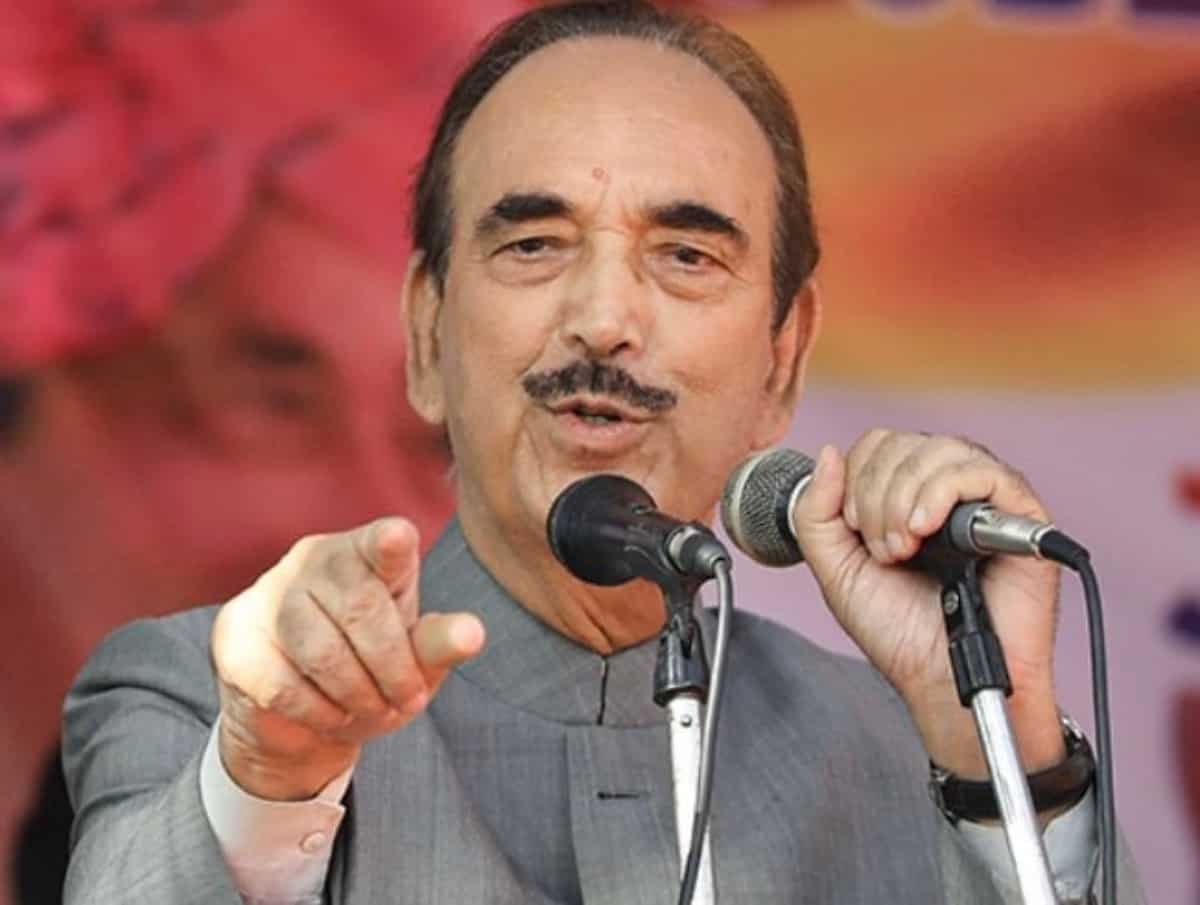
Veteran leader Ghulam Nabi Azad has surprised among others himself when his party announced his candidature from the Anantnag-Rajouri Lok Sabha seat, one of the most critical and challenging constituencies not only in Jammu and Kashmir but also in the country. This is a big plunge given the geographical spread straddling on north and south of Pir Panjal range of the Himalayas, where the demography of various ethnicities is politically as divided as two regions – Kashmir Valley and Jammu region.
The physical and demographic features of this constituency that straddles between Jammu region and Kashmir Valley are challenging enough for candidates, but there are bigger challenges for the leaders like Azad, who has put his entire political future at stake. This is for second time he is contesting Lok Sabha polls in Jammu and Kashmir. He had lost in the 2014 polls from his home constituency of Udhampur-Doda – he hails from the Doda district of Jammu region. Earlier, at the start of his political career, he had twice won from Washi Lok Sabha seat in Maharashtra in the 1980 and 1984 polls and made his entry into the Union Ministry.
But the stakes are all-time high. Unlike his previous contests on the Congress ticket, Azad has to depend on his own party – Democratic Progressive Azad Party – which he founded after quitting Congress after more than 50 years. This is a gambit that can turn either way. He must have been conscious of this before making his party leaders to announce his name for the all-important contest in Jammu and Kashmir in the ongoing Lok Sabha polls.
Azad has gone against his own word that he won’t contest the polls as he would not be able to canvass and campaign for his party candidates if he contested himself. He had promised to contest all five seats in J&K. Now when his candidature has been announced he would have to intensify the campaign within his own constituency, and he may not be able to campaign for his party’s candidate Ghulam Mohammad Galore whom he has fielded from Udhampur-Doda constituency. This is a strange political landscape that Azad is traversing at the moment.
There is yet another challenge for Azad. In some of the political circles, he and his party are seen as proxy of BJP, and that tag in the Muslim-dominated constituency of Anantnag-Rajouri is not a welcome, despite him being one of the most important Muslim leaders in the country. Whether or not BJP fields candidate from the constituency, Azad will face a very tough and complex situation. The absence of BJP candidate will confirm the tag that he is a proxy of the BJP. And if the saffron party fields a candidate, it would take Hindu votes en- masse as also the Pahari community votes. The Pahari community is in gratitude of BJP for the Modi government granted Scheduled Tribe status this year. Azad will have to steer through this critical path.
National Conference, the premier regional party of J&K, has fielded veteran Gujjar leader Mian Altaf Ahmad, who has a track record of never-losing any of the five elections he contested since 1987. He commands a lot of respect and following in the community on both sides of the constituency – Valley and Jammu region. The PDP which enjoys considerable support in south Kashmir has not fielded a candidate against him. That will help him politically. Azad is no pass over. Azad, who has done considerable work in J&K, during his two-and-a-half-year stint as Chief Minister from November 2005 to July 2008, and he is already reflecting on that, and telling them that how he aims to develop the union territory once he comes back to power. But he has brought down the scales of his contest, and in the given situation changed the goal post from forming the government to winning a Lok Sabha seat.
Much more is at stake for Azad – his reputation as a national leader. A win is must for him, but how that is not clear as yet. He will have to do something extraordinary to tell the constituency voters that he is the tallest leader who can deliver on all fronts. The testing times are ahead for him.
